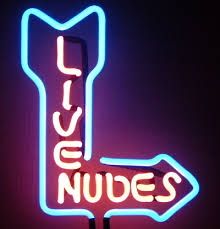
Personally, I love reading books that are a part of a series. I like getting to know the characters, watching them grow, and frankly, watching the author grow, too. Each new book is like a visit with an old friend.
In Cut, Crop & Die, one of the subplots is how Kiki’s newfound independence is threatened by a new employee, Bama. Bama’s much vaunted high-falluting degree in art leaves Kiki feeling both jealous and inept. Concurrently, Kiki’s job has become ever more precious to her. For the first time in her life, Kiki is calling all the shots. She’s a “real” grown up, responsible for herself and her daughter, Anya. She’s living solo without a parent or a spouse to tell her what to do. She’s even decorated her home in her own personal style, whereas the gorgeous McMansion she owned with her husband was furnished to his taste by a decorator.
People ask me, “Is it true that authors need to write what they know?”
Boy, wouldn’t it be a boring world if we did? I’ve never been shot at. I’ve never killed anyone. But I write about those things. So, no, I don’t always stick to what I know…except when it comes to emotions. That’s where I use my knowledge. You see, I can remember living on my own after my first marriage failed. I had a great job selling newspaper advertising—a job that threatened my first husband’s ego so much he couldn’t stand it. Finally, I decided I couldn’t stand him, so we were even.
I got my own little apartment, decorated with castoffs, but certainly reflecting my own style. I can recall what that time was like, the freedom, the fears, and the sense of finally finding myself. Those are the emotions I gave Kiki. Her relationship with Bama reminds me of how I felt when our advertising boss hired a woman he praised to the skies. I remember how he even bragged about paying her more than all of the rest of us salespeople, even though she was less experienced. He felt justified because of her stature in the community. I remember how that eroded my self-esteem and how I worried about my job performance.
I learned a lot from that experience. Fear of failure provides a marvelous incentive to work harder, to be more prepared, to think creatively, to hold nothing back. At least, it works that way for me.
And that new employee? She didn’t last long and she sure didn’t outsell me.
The neat thing about being a writer is nothing is EVER wasted. Those pains I felt, that sense of being “less than,” I don’t call them up every day. But they came in handy when I wrote Cut, Crop & Die.

















